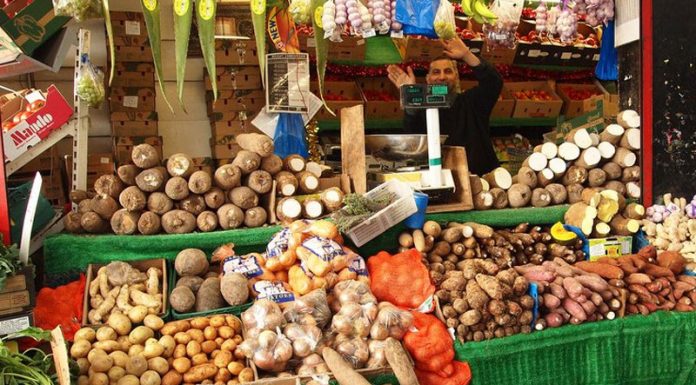This post has already been read 5008 times!
Admits farmers pay bandits, insurgents to access farms
The presidency yesterday expressed frustration that prices of food commodities have continued to increase in spite of the harvest season.
Also, in its first public admission to the reality currently faced by farmers particularly in the North-east, the presidency said it now knew security challenge that farmers “pay ransom to harvest their farms, they have to promise a portion of their harvests so that bandits and insurgents would allow them to go and harvest their farms”.
Senior Special Assistant to the President on Policy Development and Analysis, Ibrahim Bapetel Hassan, said the combined negative effects of COVID-19, recession and insecurity had created “very frightening proposition for food insecurity in this country”.
Speaking at the opening of a three-day workshop on post-harvest handling techniques, in Abuja, themed: ‘Mitigating Against Severe Food Scarcity through Simple, Efficient and Inexpensive Post Harvest Handling Techniques’, which was organised by Farms Flowers and Allied Products Initiative (FFAP), the presidential aide stated that it is the first time that increase in food prices would persist during harvest time.
Represented by Alhaji Ahmad Sagol, Hassan said: “I am very worried and I tell you that everybody who is responsible as a leader in this country at all levels – federal, states and local governments – must be worried.
“The combined negative effect of COVID-19, recession and security challenges have come together to create very frightening proposition for food insecurity in this country.
“Anybody who thinks that talking about food insecurity is just academic…needs to be examined. The truth is that I have lived long enough in this country to realise that this the first time in the history of Nigeria that food prices have refused to go down at harvest time.”
He said: “This is the danger that is facing us today. This is the first time in the history of this country that more than 70 per cent of farmer have received buyers for their farms to buy it before it is harvested; meaning that this is a year where if we are not careful, comfortable people will end up going to the streets to beg for food to feed their families. So we cannot afford one-grain wastage.
“Someone would say when last did you see a bag of onions. In our own life time, we know that when the weather is cold, prices of onion would somehow go up but it has never gone up at the level it has gone up today.
“So, that is just one item, there are many items that are going off the shelves gradually and we are just sitting down comfortably for those of us that are in the cities- we do not know the crisis our brothers and sisters go through in the rural areas.”
According to him:”And to add salt to injury, they now have to face security challenges…they have to pay ransome to harvest their farms, they have to promise a portion of their harvests so that bandits and insurgents would allow them to go and harvest their farms.”
He said, “It is important that all of us, men and women come together and start discussing not just preservation but how do we avoid the impending crisis that we are going to face with respect to food security.”
He, however, commended FFAP for pioneering initiatives towards addressing current challenges of food preservation and storage and described the workshop as one of the most laudable initiative to be championed in the country.
Meanwhile, FFAP President, Mrs. Christy Sani Yakubu, said the main objective of the training was to provide step by step practical assistance on proper post harvest handling to reduce wastage leading to huge losses adding that this is a major challenge faced by smallholder farmers in the country and Africa in general.
Citing figures by the Food and Agriculture Organisation (FAO), Yakubu said one third of food produced globally for human consumption is lost or wasted along the supply chain, due largely to lack of post harvest handling knowledge, skills and infrastructure.



